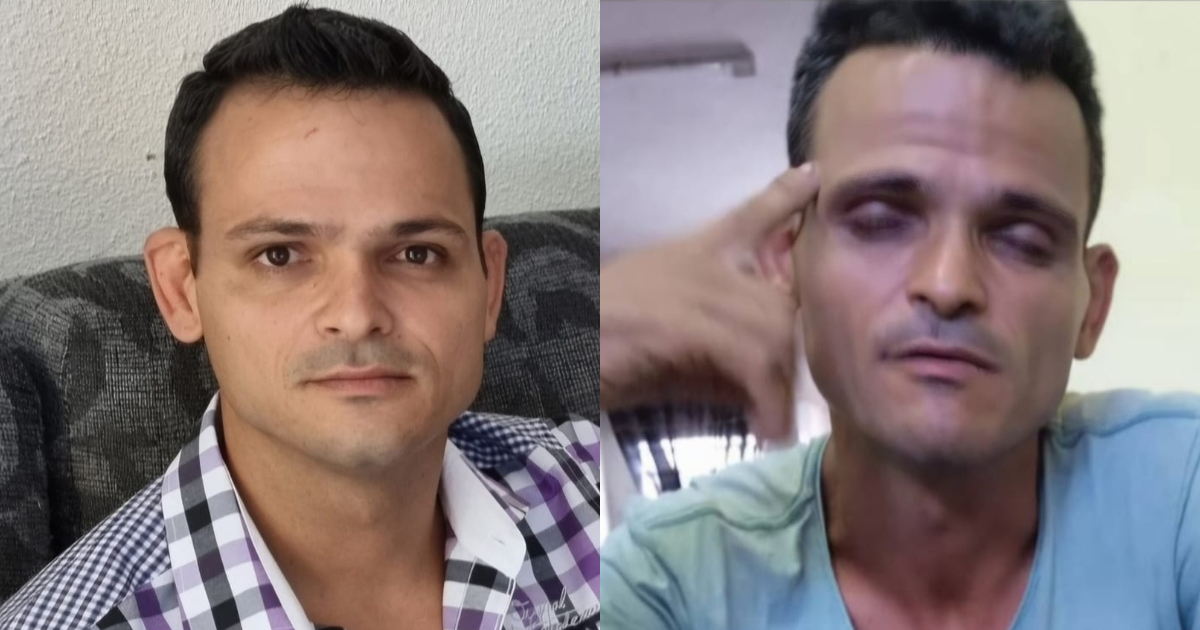A 34-year-old Cuban man, with a mental age of 12-13, has been detained in Minas (Camagüey) since July 18, awaiting a decision from the prosecutor on his case. Despite his medical history showing he suffers from paranoid schizophrenia and intellectual disability from birth, he remains in custody. During a psychotic episode, he assaulted his partner, who understandably reported him, but she has since withdrawn the complaint, realizing he is not an abuser but a mentally ill person. Nonetheless, he remains under arrest, even though the officers handling his case acknowledge his place should be in a psychiatric hospital, not a jail cell.
His mother, residing in Germany, blames herself for the progression of his illness, attributing it to the sense of loss he felt when she emigrated from Cuba 30 years ago. However, she did not leave her children behind. She has three children; the eldest lives with her in Germany, and the twin of the detained man resides in the United States. She also took him out of Cuba, and he spent some time in Spain when his sister lived there. During those eight months, his condition improved significantly, but he fell in love with a girl from Cuba he met on Facebook and returned to the island. Unfortunately, he had overstayed his invitation in Europe and now faces a ten-year ban from the European Union.
"You have to be really crazy to return to live in Cuba, but he did it for a woman," says the mother, who is afraid to return to Cuba due to her political activism potentially leading to imprisonment. She had discussed this with him before he returned to the island. "He knew he was practically saying goodbye to me because I won't go back."
In Cuba, the young man's health worsened. The mother has, at times, blamed her son's partner for taking advantage of his intellectual disability and then breaking up with him, causing him crises. However, she has now withdrawn the complaint, understanding that he is an unstable person who cannot control his impulses, has suicidal tendencies, and urgently needs psychiatric treatment.
The situation remains that the young man with a diagnosed mental illness is being treated as a criminal instead of being urgently admitted to a hospital. His disability is congenital; being a twin birth, he was intubated and critically ill, with doctors warning at the time that he would have lasting effects. He suffers from respiratory issues and what is referred to as "intellectual disability" in Europe. He was diagnosed with paranoid schizophrenia seven years ago at the Camagüey Psychiatric Hospital, and his mother has communicated this to an officer in Minas, who assured her there was a chance he could be released due to his disability. She does not understand why he remains detained if they know he is unwell.
The mother believes he is still in custody due to the shortage of medications for mental health treatment in Cuba. Recently, staff from the Placetas Psychiatric Hospital reported that the lack of medications has left patients agitated and with inadequate care due to the mass emigration of much of the medical staff who used to care for them.
Understanding the Detention of Mentally Ill Individuals in Cuba
This section aims to address common questions regarding the detention and treatment of individuals with mental health issues in Cuba.
Why is the young man still detained despite the withdrawn charges?
The young man remains detained because the prosecutor has not yet decided on his case, and there are systemic issues such as the shortage of medications for mental health treatment in Cuba.
What are the underlying issues in the Cuban mental health system?
The Cuban mental health system faces significant challenges, including a shortage of medications and the emigration of medical staff, which leads to substandard care for patients.
How has the mother's emigration impacted her son's mental health?
The mother believes that her emigration caused a sense of loss in her son, which may have contributed to the progression of his mental illness.
